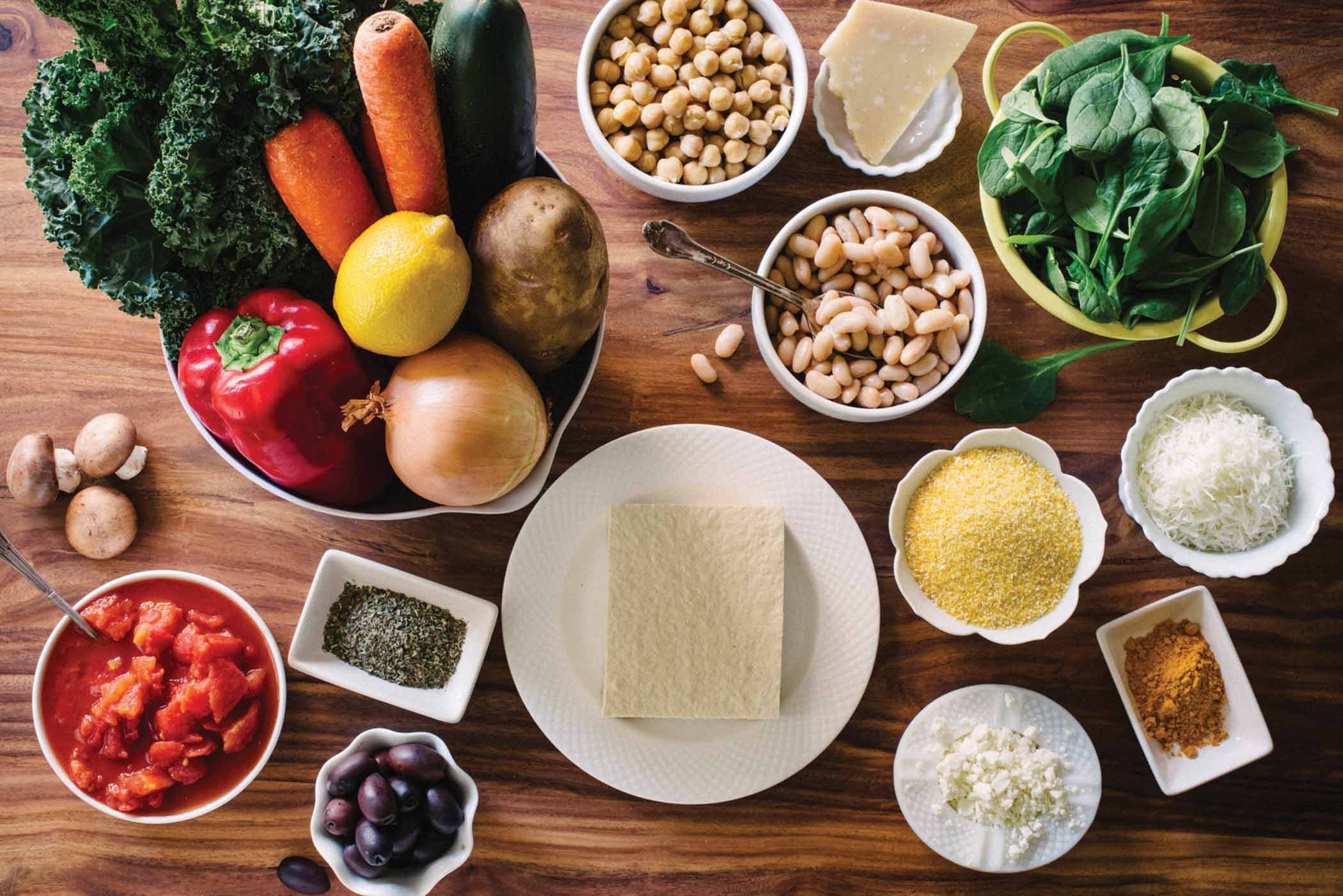Fueling For The Vegetarian Athlete

Photo: Stocksy
Going meat-free can be a healthier choice, but it doesn’t guarantee body composition (or performance) improvements. Here’s how to avoid common pitfalls when going vegetarian.
Athletes who are new to a vegetarian diet often make the same mistakes: They rely too heavily on meat-free processed food, don’t have enough variety in their diet, and consume an excessive amount of carbs or too few healthy fats. Consider these basic guidelines to ensure you meet your nutritional requirements as a vegetarian athlete.
Macro needs
The dietary recommendation for athletes is 3–12 grams per kilogram of body weight per day in carbohydrates (a higher carb intake should correspond to heavier training), 1.2–1.8g/kg per day in protein and 1 g/kg per day in fat (or about 25–30 percent of total energy intake).
For example, a 130-pound (59 kg) athlete who trains for two hours per day in peak season requires 413 grams of carbs (5g/kg), 100 grams of protein (1.7g/kg) and 69 grams of fat (based on a 2500 calorie diet with 25 percent fat). Take into account fitness level, training regime, weight loss, age and gender to determine your appropriate macronutrient needs. Keep in mind that plant-strong diets are high in both soluble and insoluble fiber, which is beneficial for blood sugar control (among many other health benefits), but if they’re not combined with enough fat and protein, you won’t be satiated long.
RELATED: What Is The Right Balance Of Carbs, Fat And Protein?
Iron needs
Vegetarian diets contain non-heme iron (less absorbable than animal protein), so iron intake needs are up to 1.8 times greater than meat eaters (iron intake recommendations for non-vegetarian adult females and males is 18mg and 8mg, respectively). Find a detailed list of plant-based foods with iron on The Vegetarian Resource Group website (Vrg.org/nutrition/iron.php).
RELATED: Are You Meeting Your Body’s Iron Needs?
Other nutrient needs
Make an extra effort to consume nutrients like calcium, iron, zinc, omega-3, vitamin D, B12 and niacin, particularly if your diet lacks variety. A chronic nutrient deficiency (or absorption issue) may result in health and/or performance complications. Although it’s best to consume these nutrients through real food, supplements and fortified foods are an option to protect against or fix a nutrient deficiency. In addition to fruits and veggies, stock your kitchen with these dietary staples to ensure you have a varied, nutrient-rich diet: organic soy (edamame, tofu, tempeh, miso), organic dairy (yogurt, cottage cheese, milk), natural nut butter, lentils, wheat germ, nutritional yeast, seitan, eggs, cheese, whole grains, rice, beans, avocados, oil, seeds (hemp, ground flax, chia) and nuts. For long workout days, also be aware of your fiber intake and stick to low-fiber carbohydrate sources, such as rice, potatoes, juice, honey, syrup and watery fruits, which can quickly replenish glycogen stores without causing uncomfortable fullness or GI issues.
RELATED: How To Be A Well-Fueled Machine
Blood testing
It’s always a good idea for athletes, whether or not they’re restricting certain foods, to consider periodic blood testing throughout the season to make sure they are not deficient in essential nutrients. An athlete’s lab results may not always correlate with “normal” population lab values.
RELATED: How Food Intolerance Could Be Affecting Your Performance